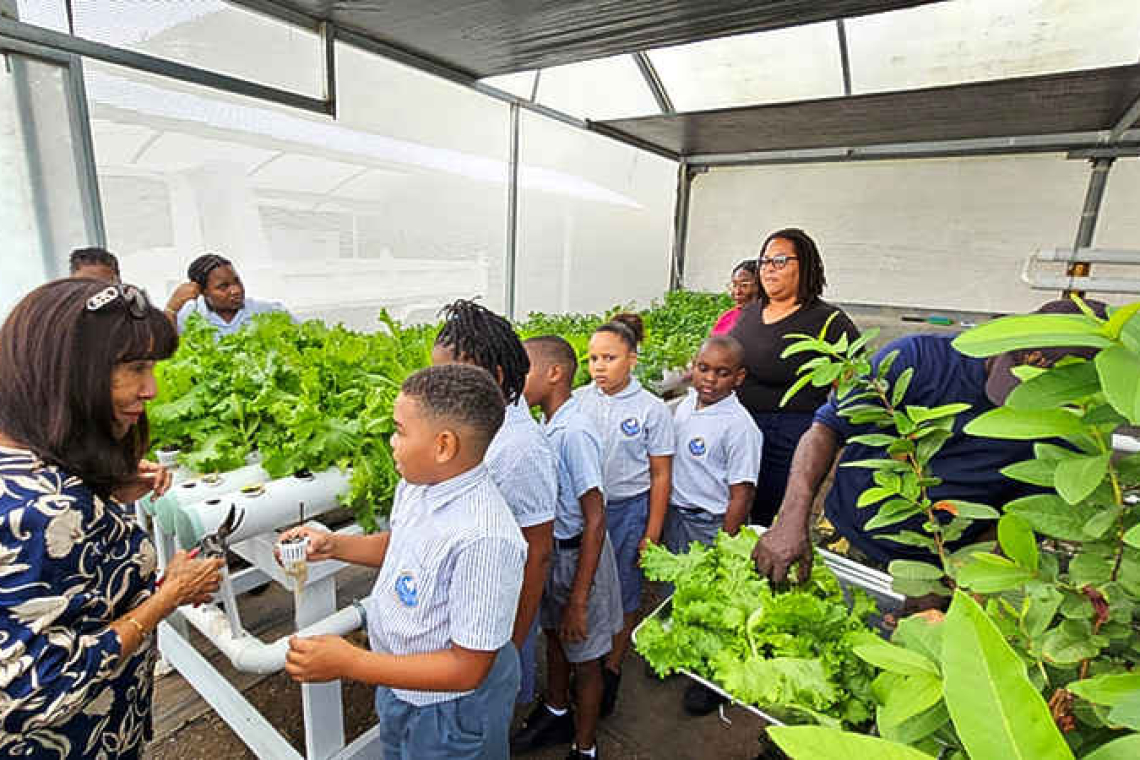As part of the pilot project, hydroponic systems will be installed at eight schools across St. Maarten.
PHILIPSBURG--The Ministry of Tourism, Economic Affairs, Transport and Telecommunication (TEATT), in collaboration with the Ministry of Education, Culture, Youth and Sport (ECYS), has officially launched the building and training phases of the Hydroponics Train-the-Trainers Pilot Project in Schools. This initiative is aimed at promoting sustainable agriculture in St. Maarten.
The project began in January 2025 and is funded by the Green Overseas (GO) Programme, an initiative of the European Union implemented by Expertise France. It seeks to strengthen food security and climate resilience through hands-on training in hydroponic farming – a water-efficient, soil-less method ideal for the island’s environmental conditions.
As part of the pilot project, hydroponic systems will be installed at eight schools across St. Maarten – six primary schools and two secondary schools. The participating institutions are Dr. Martin Luther King Jr. School, Sr. Regina School, Sr. Magda School, Sr. Borgia School, Seventh-day Adventist School, Sundial School, and St. Dominique School. These installations aim to integrate sustainable agriculture into the school environment, providing students with hands-on learning opportunities while supporting school feeding programmes and promoting local food production.
Leading the project is Kristina Adams, founder of Barbados-based Adams Aqualife, who brings more than 20 years of experience in hydroponic systems across the Caribbean. Adams was selected through a transparent and competitive tendering process and has previously delivered similar successful programmes in Barbados, Anguilla, and other islands.
Working alongside local teachers, school staff, and community members, Adams is training participants to become hydroponics trainers themselves. This “train-the-trainer” model is designed to create a ripple effect – spreading agricultural knowledge across the island and building a self-sustaining network of educators and growers.
Training sessions were completed between January and February 2025, followed by the stocking of plant systems. The building phase began with two schools and yielded a first harvest by late February and early March. The next phase, set for April 2025, includes finalising installations and introducing seedlings at all participating schools.
In addition to supplying fresh produce for school feeding programs, the initiative is expected to reduce reliance on imported goods and increase access to locally grown, healthy foods. Over time, it aims to benefit broader communities and support the island’s food sovereignty.
“The Hydroponics Pilot Project is a major step toward a more sustainable and food-secure future for St. Maarten,” said a TEATT spokesperson. “We are proud to invest in innovation and environmental stewardship while empowering our schools and communities.”







